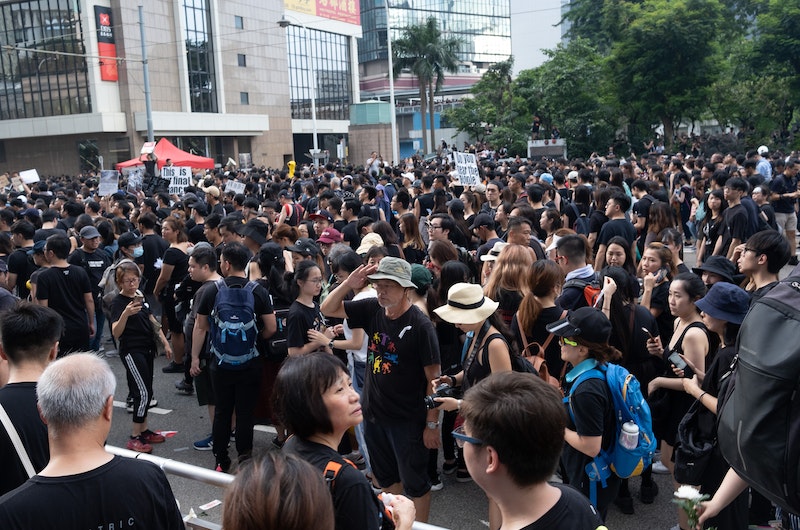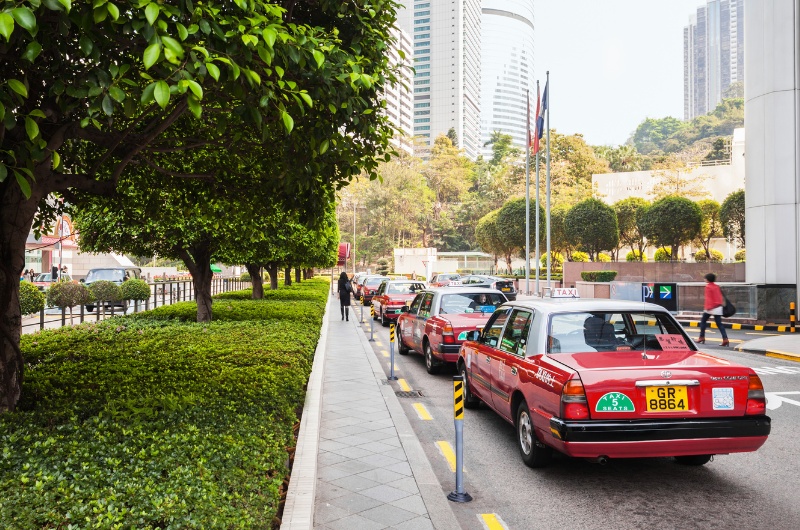
National anthems and the struggle for autonomy in Hong Kong have been intertwined in recent years, reflecting the complex dynamics between the city and the central government in Beijing. Hong Kong’s unique position as a Special Administrative Region of the People’s Republic of China, with its own legal, economic, and political systems, has led to tensions and disputes over issues of identity, sovereignty, and national symbols.
The national anthem of the People’s Republic of China is the “March of the Volunteers,” also known as the “National Anthem of the People’s Republic of China.” It was originally composed in 1935 as a rallying cry against Japanese aggression and later became the official anthem of the People’s Republic of China. As a symbol of Chinese national pride, it holds significant cultural and political importance for the Chinese government.
In September 2019, the Hong Kong government proposed a controversial bill that would require Hong Kong to enact a law to criminalize disrespecting the Chinese national anthem. The proposed legislation sparked widespread opposition and protests in the city. Critics argued that the bill was an infringement on Hong Kong’s promised high degree of autonomy under the “one country, two systems” framework.
Pro-democracy activists and citizens saw the bill as an attempt to erode Hong Kong’s unique identity and impose mainland China’s political values on the city. They feared that such legislation would further diminish the freedoms and civil liberties that Hong Kong residents had enjoyed under the British colonial era and the Basic Law, which serves as the mini-constitution for the city.
The proposed national anthem bill became a flashpoint for the pro-democracy movement in Hong Kong. It symbolized the encroachment of Beijing’s influence on the city’s autonomy and the erosion of its distinct identity. Protests erupted in 2019, often referred to as the “Anti-Extradition Law Amendment Bill protests,” as millions of people took to the streets to express their grievances and demand greater democratic reforms.
During the protests, the Chinese national anthem was frequently targeted by demonstrators. Some protesters sang alternative songs, such as “Glory to Hong Kong,” which emerged as an unofficial anthem of the pro-democracy movement. This anthem, composed anonymously and widely shared on social media, captured the aspirations of many Hong Kong protesters who sought greater autonomy and democratic rights. Its adoption by protesters showed a rejection of the Chinese national anthem and served as a symbol of their fight for self-determination.
The struggle overhong kong national anthem reflects deeper issues of identity and the city’s relationship with mainland China. Hong Kong has a distinct history, culture, and political system that sets it apart from mainland China. The “one country, two systems” framework was intended to preserve Hong Kong’s autonomy and allow it to maintain its own legal, economic, and political systems.
However, concerns over Beijing’s increasing influence and control over Hong Kong have grown in recent years. Critics argue that the central government has been steadily eroding Hong Kong’s autonomy and suppressing dissent. The proposed hong kong national anthem bill was seen as another step in this direction, as it sought to enforce loyalty to the Chinese national anthem and, by extension, the central government.
In June 2020, the Chinese government imposed the national security law on Hong Kong, bypassing the city’s legislative process. The law criminalizes acts of secession, subversion, terrorism, and collusion with foreign forces, with severe penalties, including life imprisonment. Under the national security law, disrespecting the Chinese national anthem can be considered an offense, punishable by imprisonment and fines.
The imposition of the national security law further heightened concerns about the erosion of Hong Kong’s autonomy and the suppression of political dissent. It raised fears of increased censorship, surveillance, and restrictions on freedom of speech and assembly. Many pro-democracy activists and advocates for Hong Kong’s autonomy have faced legal repercussions and increased scrutiny under the new law.
The struggle for autonomy in Hong Kong, including the issue of hong kong national anthem, is far from resolved. The tensions between the city and the central government in Beijing continue to shape the political landscape. The protests and civil unrest in 2019 were met with a heavy-handed response from the authorities, leading to arrests, prosecutions, and a climate of fear.
The future of Hong Kong’s autonomy and its relationship with mainland China remains uncertain. The struggle over hong kong national anthem reflects the broader struggle for democracy, human rights, and self-determination in Hong Kong. As the city navigates these challenges, the issue of national symbols and their significance will continue to play a role in shaping the aspirations and identity of Hong Kong’s people.

 探索亞洲交通新常態
探索亞洲交通新常態  Exploring the Wonderful Journey of the Digital World
Exploring the Wonderful Journey of the Digital World  讓美食成為生活中的亮點,專屬於您的用餐體驗
讓美食成為生活中的亮點,專屬於您的用餐體驗  天然護膚品與營養飲食:呵護你的身體與心靈
天然護膚品與營養飲食:呵護你的身體與心靈 


